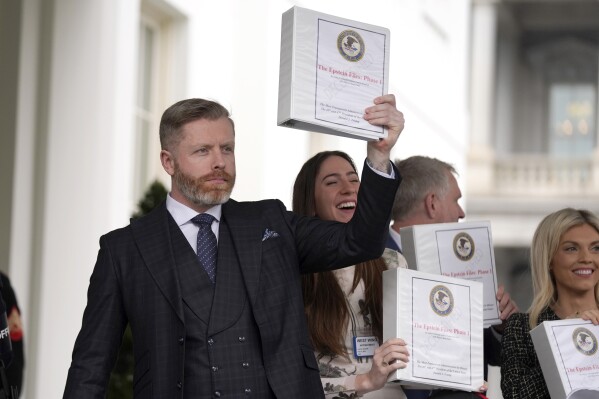In a bold move, top House Democrats, led by Representative Jamie Raskin, have called on the Department of Justice (DOJ) to release documents related to Jeffrey Epstein’s sex-trafficking case that mention or reference President Donald Trump. In a six-page letter sent on July 8, 2025, Raskin and 15 other Democrats accused Attorney General Pam Bondi of withholding these files to shield Trump from potentially damaging information. They also demanded the immediate release of the second volume of former special counsel Jack Smith’s report on Trump’s alleged mishandling of classified documents, arguing that Bondi’s actions reflect a pattern of protecting the president.
The Democrats’ demands come amid heightened scrutiny of the DOJ’s handling of Epstein-related materials. Epstein, a disgraced financier and convicted sex offender, died in 2019 in a Manhattan jail cell, with federal investigators concluding his death was a suicide. Despite public anticipation, fueled by Bondi’s earlier promises of revealing explosive details, the DOJ’s recent releases of Epstein files have disappointed many. A first batch of documents, distributed in February 2025 to select Trump supporters in white binders stamped with the DOJ’s seal, contained no new revelations. A subsequent memo on July 7, 2025, reiterated that no secret “client list” of Epstein’s exists, further frustrating expectations.
The letter highlights a since-deleted post by billionaire Elon Musk, who, during a public feud with Trump in June 2025, claimed that Trump’s name appears in the Epstein files and suggested this was why they remain unreleased. Although Musk later apologized, Democrats argue his statement points to records that deserve public scrutiny. They question whether the DOJ’s extensive review of Epstein files—reportedly involving extra staff working nights and weekends—has been deliberately stalled to protect Trump from “embarrassing revelations.”
Beyond the Epstein files, the Democrats criticized the DOJ for refusing to release Smith’s report on Trump’s handling of classified documents after his first term. A federal court dismissed the case against Trump in February 2025, but the DOJ has blocked the report’s release, breaking with the precedent set by former Attorney General Merrick Garland, who released unredacted special counsel reports, including one on President Joe Biden’s handling of classified materials. The Democrats argue this inconsistency suggests favoritism, especially given Bondi’s history as part of Trump’s legal team during his 2020 impeachment trial.
The letter also accuses the DOJ of becoming Trump’s “personal law firm,” pointing to the appointments of Bondi, Deputy Attorney General Todd Blanche, and Associate Attorney General Emil Bove—all former Trump lawyers—to top DOJ positions. Democrats claim this loyalty-driven leadership has led to selective transparency, such as allowing Republican-led investigations into Smith’s work while withholding key documents from the public.
“This administration has repeatedly claimed that President Trump is ‘the most transparent and accessible president in American history,’” the Democrats wrote. “So far, your DOJ has not only failed to live up to this promise, but you have also consistently hidden from the American public materials and information that may be damaging to President Trump.” They demanded that Bondi “stop protecting your boss and former client” and release both the Epstein files mentioning Trump and the full Smith report without redactions.
The controversy has sparked broader questions about transparency in the Trump administration. While Trump has denied any close ties to Epstein, dismissing ongoing discussions about him as “unbelievable,” the Democrats’ push reflects growing public demand for clarity. With Democrats in the minority on the House Judiciary Committee, their request is unlikely to gain traction without Republican support, which has so far focused on investigating the DOJ’s actions against Trump rather than demanding document releases.
As the debate continues, the Epstein files and Smith’s report remain focal points of contention, raising critical questions about accountability and the role of the DOJ in serving the public interest. For now, the American public awaits answers, caught between promises of transparency and accusations of concealment.
